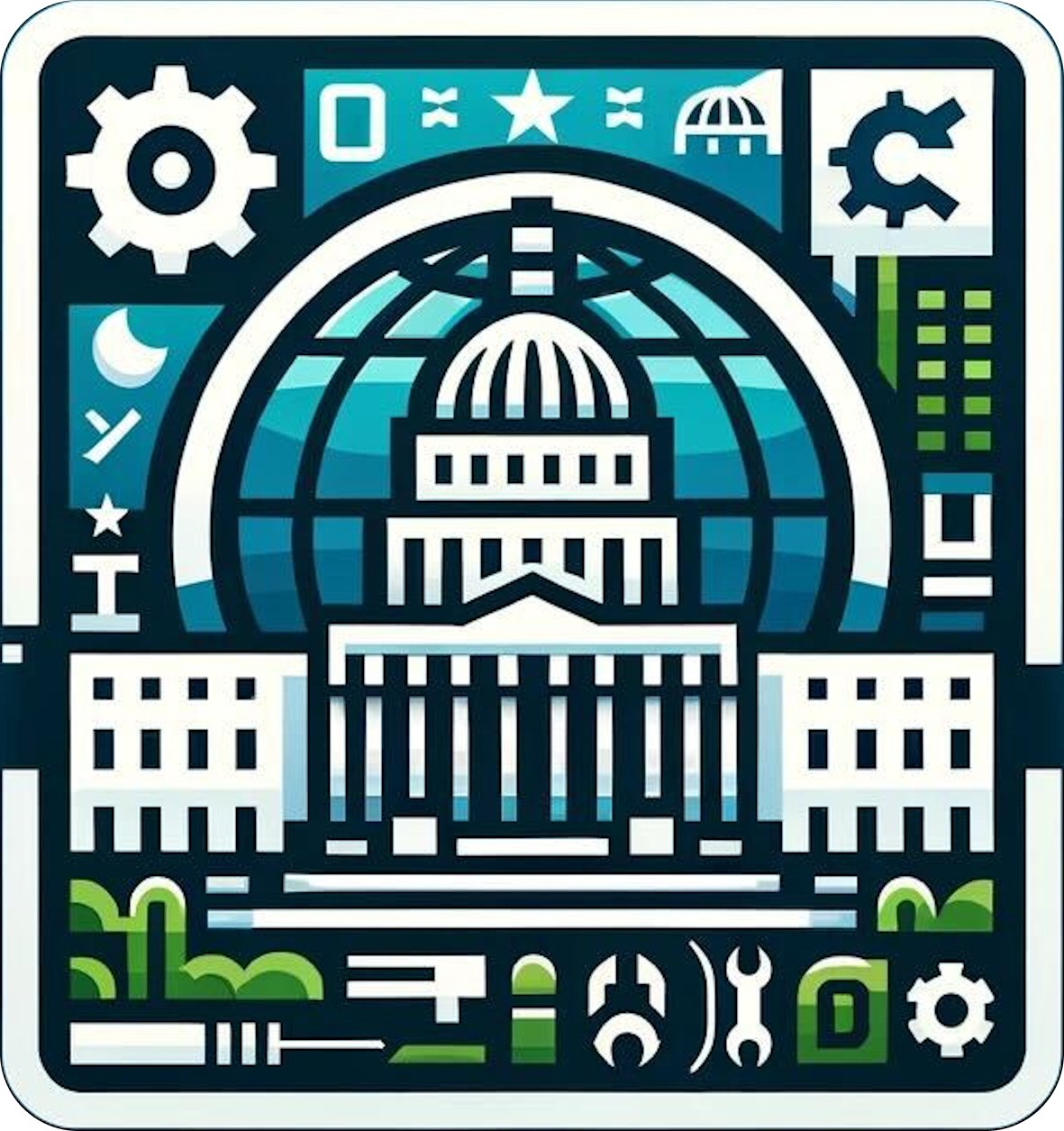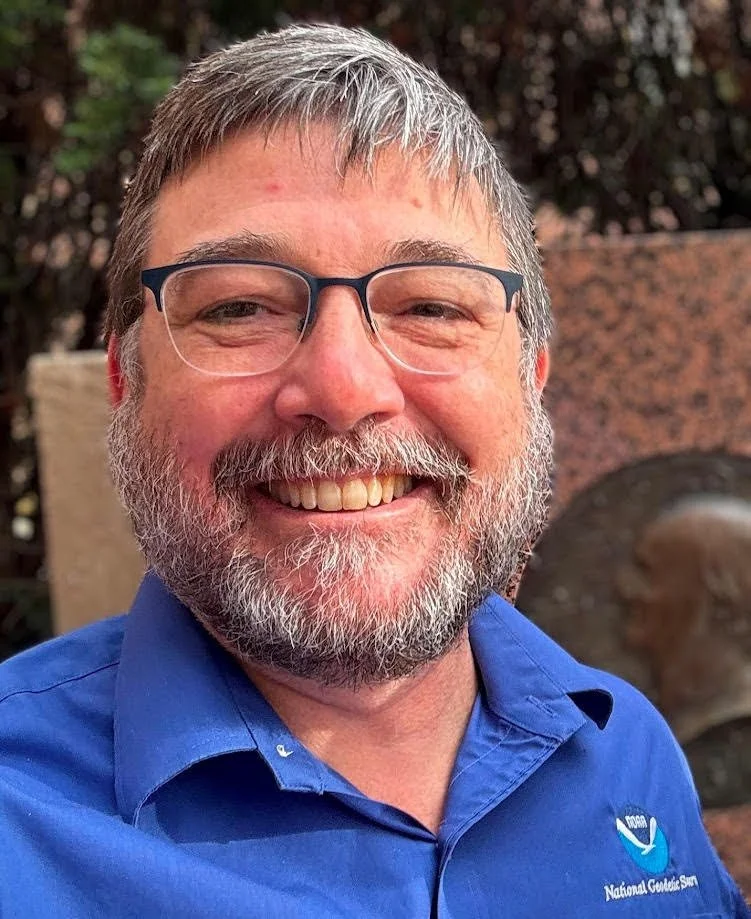Workshops
To attend, add a Workshop ticket in addition to registering for the
FedGeoDay Main Plenary Event on Eventbrite.
Wednesday, May 1 - Morning
Intro to Using Open Science As an Enabler for Government and Public Sector Applications
Rachel Opitz, Open Geospatial Consortium
This interactive workshop will introduce the Open Geospatial Consortium's recently launched initiative to develop an Open Science Persistent Demonstrator (OSPD), sponsored by NASA and ESA.
Workshop participants will gain knowledge and insights on:
Core components of the OSPD’s in-development technical architecture
The initial use cases envisaged for the OSPD
The set of open science actions supported in the OSPD
How OGC standards can be used to enable Open Science
Participants will be able to help shape the OGC’s Open Science work by:
Collaborating to develop proposals for future OSPD use cases
Brainstorming additional features to extend the OSPD
Draft Schedule
9:00-9:15 Introductions
9:15-9:50 OSPD technical architecture and use cases overview + Q&A
9:50-10:00 Break
10:00-10:20 Mapping exercise - matching open science actions to OSPD use cases
10:20-10:40 Intro to OGC standards used in the OSPD
10:40-11:00 Mapping exercise - matching open science actions to OSPD technical components
11:00-11:10 Break
11:10-11:40 Group Brainstorming - proposals for use cases and features
11:40-12:00 Report back and wrap up
Getting Started With Geoserver: Data Configuration And Styling
Trainer: Andrea Aime
This workshop will get your started with GeoServer, covering:
Getting to know the GeoServer configuration UI
Setting up vector data, such as shapefile and postgis, in GeoServer
Setting up raster data, such as geotiff, in GeoServer
Styling maps with GeoCSS and creating styles with desktop tools
In order to participate no previous knowledge of GeoServer and OGC services is required, but a basic knowledge of GIS concepts and basic data formats (shapefiles, geotiff) is recommended.
GeoSolutions will make available an all-in-one package to run the workshop as a VM for VirtualBox or a self-contained Zip file for Windows. This should be pre-installed on attendees laptops before the workshop.
Keywords
GeoServer, GeoWebCache, WMS, WFS, WCS, WMTS, WPS, SLD, OGC, Web Mapping
Wednesday, May 1 - Afternoon
Building and Consuming Urban Digital Twins with Open-Source Tools
Trainer: Stefano Bovio
Abstract
In an era where urban development demands innovative solutions, this workshop describes processes and tools used by the author and his team to build and consume digital twins for urban environments. Leveraging the latest advancements in open-source geospatial technology, we will guide attendees through the process of transforming vector data and point cloud datasets into 3D models using open-source tools in order to consume them within MapStore WebGIS framework (thanks to its support for Cesium JS) and consequently within the GeoNode platform. This hands-on session is designed around the implementation of pipelines and cutting-edge 3D visualization techniques, directly applicable to real-world urban contexts.
Participants will gain exclusive insights into the development and exploitation of digital twins, drawing upon our team's extensive experience with urban reconstruction projects. The workshop will showcase how these digital replicas serve as essential tools for urban planning, facilitating detailed analysis, scenario planning and public engagement.
Attendees will be provided with sample data from a selected city in the US, offering a unique opportunity to learn skills to convert and visualize this data on the web using 3D Tiles format within a MapStore instance. This process not only demonstrates the conversion of geospatial data into 3D Tiles format ready to be served over the web but also underscores the importance of interoperability and accessibility in geospatial data management.
Through this workshop, participants will:
Learn how to effectively convert vector (shapefiles) or point cloud (las) data into 3D Tiles format compatible with MapStore and Cesium.
Explore the integration of MapStore (and GeoNode) for enhanced 3D visualization and GIS capabilities.
Understand the role of digital twins in urban planning and the potential for these tools to transform city development and management.
Engage in hands-on exercises that illustrate the creation and utilization of 3D digital twins, from data conversion to visualization and analysis within a GeoNode framework.
This session is ideal for GIS professionals, urban planners, researchers, and anyone interested in the forefront of geospatial technology and urban development.
A repository with a docker solution will be provided to the attendees to facilitate the setup of all needed tools. A basic understanding of python and javascript languages is needed even if most of the processes and interactions will be done with a dedicated user interface.
Join us to explore how the synergy between GeoNode, MapStore, and innovative 3D data processing can pave the way for smarter, more sustainable urban futures.
What Is a Vector Db and Why Should Geospatial People Care
Steve Pousty Ph.D., Founder, Tech Raven Consulting
The recent rise of “AI,” and its potential impact, has made it the focus of discussion (and hype). Vector databases play a vital role in this emerging area of technology. These databases can play a key role in your search and AI workflows. There are data stores built de novo, just for vector data and most of the major traditional data stores have added vector capabilities as well.
This workshop is going to get you hands on with vector data and some use cases. You will be able to answer questions such as: What are these “vectors,” where do they come from, how do you query them, what are their use cases, and what role are they going to play in your existing infrastructure?
We will look at some unstructured data sets, then look at their vectors, next put them in a vector store (PostgreSQL pg_vector), and finally do some fun and interesting queries. Bring your laptop and the ability to read Python code. If you are comfortable with Python, then you should be able to extend the code.
Come get your hands dirty with this innovative technology, discuss its pros and cons, and get a sense of how to pick a starting vector database.
Preparing for the Impending Modernization of the U.S. National Spatial Reference System and Impacts on Federal Geospatial Data Providers and Users
Trainer: Charles Geoghegan
Leader: Dan Roman NOAA NGS
Leader: Galen Scott, NOAA NGS
NOAA's National Geodetic Survey (NGS) defines, maintains, and provides access to the National Spatial Reference System (NSRS), which is a common foundation for geospatial data that serves as the basis for civilian surveying and mapping in the United States. Changes in technology and a better understanding of the dynamic earth have made it necessary to improve the NSRS to be of better use for modern applications. Currently, NGS is in the process of modernizing the NSRS, updating the existing horizontal datums with a suite of geometric reference frames and the vertical datums with a gravimetrically-derived geopotential datum.
This workshop is for US Federal Agency employees and partners who are responsible for collecting and maintaining geospatial datasets, collecting new geodetic information for geospatial observations, and any other geospatial information. In 2026, the spatial reference frames for all federal geospatial data will change, impacting nearly all government agencies and their product suites. This will also impact their customers and stakeholders who may have business in front of these agencies. The impacts will be widespread, but they can be mitigated by early action by the employees and leadership of the federal agencies. This will impact Departmental policy and geospatial strategies across the board. This workshop will provide background and context for this issue and provide attendees with insights into how to prepare to make the transition.







